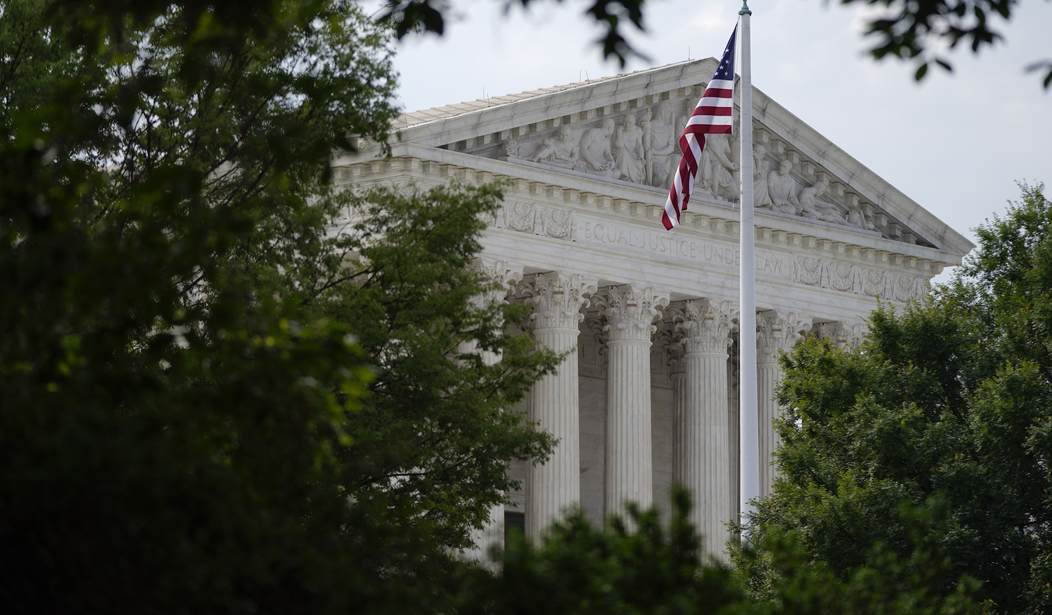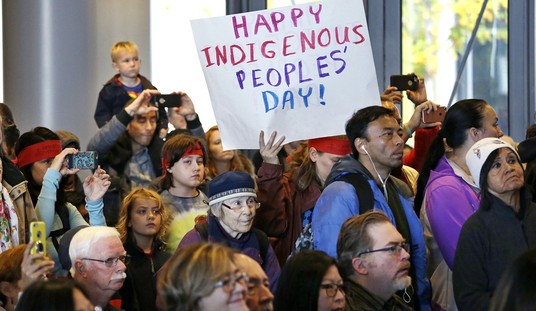We're getting there — we are just about caught up on the Supreme Court decisions handed down thus far for the 2024 Term. (Bear in mind, they typically issue around 60 decisions each term, and there have been 27 thus far, so we've got a long way to go.)
This batch features an interesting assortment. In the "Smoke 'Em If You've Got 'Em" merits basket, we've got a unanimous decision and a 5-4 split over e-cigs and THC masquerading as CBD. In the "Shadow Docket" basket, we have two decisions arising out of the recent spate of litigation involving the Trump administration's executive actions (and the "Resist We Much Via the Courts" Brigade).
Fair warning: These are all pretty in the weeds, and I struggled with the e-cig and CBD cases to distill the decisions into a meaningful/helpful "skinny." But I gave it my best shot.
Early April 2025 Decisions
FDA v. Wages and White Lion Investments, LLC
Date: April 2, 2025
Author: Alito
Split: 9-0
Dissent: N/A
Appeal From: 5th Circuit
This case concerns whether the Food and Drug Administration (FDA) lawfully denied respondents authorization to market certain electronic nicotine delivery system products—known as electronic cigarettes, e-cigarettes, or vapes. These products have rapidly gained popularity during the past 20 years, offering existing smokers a potentially safer alternative to traditional combustible cigarettes. But e-cigarettes carry their own health risks, and the panoply of available flavors—which include not only traditional cigarette flavors (like tobacco and menthol) but also fruit, candy, and dessert flavors—appeals to nonsmokers, particularly younger Americans.
The FDA has long had the responsibility to determine whether manufacturers may market new drugs, but it was the passage of the Family Smoking Prevention and Tobacco Control Act of 2009 (TCA) that first gave the FDA broad jurisdiction to regulate tobacco products. Although the Act barred the FDA from banning all regulated tobacco products outright, see 21 U. S. C. §387g(d)(3), it prohibited a manufacturer from marketing any “new tobacco product” without FDA authorization, see §387j(a)(2)(A). One pathway to authorization of a “new tobacco product” is the submission of a premarket tobacco product application. See §387j(c)(1)(A)(i). The TCA requires the FDA to deny such an application unless an applicant shows that its product “would be appropriate for the protection of the public health.” §387j(c)(2)(A). To determine this, the FDA must consider, among other things, “the risks and benefits to the population as a whole” and “tak[e] into account” the likelihood that users of existing tobacco products will stop using those products and that non-users will start using them. §387j(c)(4).
In 2016, in response to the surging youth demand for flavored products, the FDA deemed e-cigarettes “tobacco products.” Given that most e-cigarette products were not marketed in the United States before February 15, 2007, the vast majority of these products qualified as “new tobacco product” under the TCA. Most manufacturers of e-cigarette products would thus need to comply with the TCA’s premarket authorization regime to sell their products. This made the continued sale of most e-cigarette products illegal absent authorization. So to give these manufacturers adequate time to submit premarket tobacco product applications, the FDA delayed enforcement for two to three years. See 81 Fed. Reg. 28977–28978. This permitted e-cigarette products to remain on the market while manufacturers filed their applications. A Federal District Court ultimately imposed a deadline of September 9, 2020, for applications.
In the lead up to the application deadline, the FDA issued numerous forms of guidance concerning premarket tobacco product applications that orbited around four central themes: (1) the types of scientific evidence that would be required; (2) the importance of cross-product comparisons and investigations; (3) the FDA’s enforcement priorities with respect to device type; and (4) manufacturers’ marketing plans, which were described as “specific restrictions on sale and distribution” meant to deter new smokers from taking up e-cigarette products. In 2019, the FDA proposed a rule related to the submission of premarket tobacco product applications, and the proposed rule distilled the four topics discussed in the predecisional guidance. See 84 Fed. Reg. 50566, 50580, 50581, 50585, 50603.
Respondents submitted applications seeking approval to market and sell flavored e-liquids for open-system e-cigarettes. The FDA denied respondents’ applications, concluding they had not provided sufficient scientific evidence to demonstrate that the marketing of their products would be appropriate for the protection of public health. Specifically, the FDA held respondents had not provided evidence from a randomized controlled trial, longitudinal cohort study, or other “robust and reliable” evidence that their dessert-, candy-, and fruit-flavored products had benefits over tobacco-flavored products. Despite previously describing marketing plans as “critical,” the FDA decided “for the sake of efficiency” not to evaluate respondents’ marketing plans. To each denial order, the FDA appended a “Technical Project Lead (TPL) Review.” See App. to Pet. for Cert. 177a, 285a. These lengthy documents, which canvass the scientific literature on youth e-cigarette use, reflect the FDA’s evolving understanding of how flavor, regardless of e-cigarette device type, drives youth smoking initiation and nicotine addiction.
Respondents petitioned for judicial review of the FDA’s denial orders under the Administrative Procedure Act (APA). See §387l(b) (citing 5U. S. C. §706(2)(A)). The Fifth Circuit, sitting en banc, granted respondents’ petitions for review and remanded to the FDA. The en banc majority held that the FDA had acted arbitrarily and capriciously by applying application standards different from those articulated in its predecisional guidance documents regarding scientific evidence, cross-flavor comparisons, and device type. The court expressed particular concern about the FDA’s failure to review marketing plans it previously deemed critical. It also rejected the FDA’s argument that any errors were harmless.
Whether the court of appeals erred in setting aside FDA's denial orders as arbitrary and capricious.
Holding: Vacated and remanded.
The U.S. Court of Appeals for the 5th Circuit erred in setting aside as arbitrary and capricious the FDA"s orders denying respondents" applications for authorization to market new e-cigarette products pursuant to The Family Smoking Prevention and Tobacco Control Act of 2009; the 5th Circuit also relied on an incorrect standard to reject the FDA"s claim of harmless error regarding the agency"s failure to consider marketing plans submitted by respondents.
Skinny: Flavored e-cigs probably aren't going to clear FDA hurdles, but the lower court needs to take another look at the FDA's change-up regarding its evaluation of marketing plans to make sure.
Medical Marijuana, Inc. v. Horn
Date: April 2, 2025
Author: Barrett
Split: 5-4
Dissent: Thomas, Kavanaugh, Roberts, Alito
Appeal From: 2nd Circuit
Seeking relief from his accident-related chronic pain, Douglas Horn purchased and began taking “Dixie X,” a purportedly THC-free, non-psychoactive CBD tincture produced by Medical Marijuana, Inc. A few weeks later, however, Horn’s employer selected him for random drug screening, and Horn tested positive for THC. After he refused to participate in a substance abuse program, his employer fired him. Horn then sued Medical Marijuana under the Racketeer Influenced and Corrupt Organizations Act (RICO), which creates a cause of action for “[a]ny person injured in his business or property” by reason of a criminal RICO violation. 18 U. S. C. §1964(c). The District Court granted summary judgment to Medical Marijuana. Horn’s lost employment derived from a personal injury (ingesting THC), the court reasoned. And in the court’s view, §1964(c) forecloses recovery not only for personal injuries, but also for business or property harms that result from such injuries. The Second Circuit reversed, concluding that Horn had been “injured in his business” when he lost his job. In so holding, the Second Circuit rejected the “antecedent-personal-injury bar,” a rule adopted by several circuits that precludes recovery for business or property losses that derive from a personal injury.
Whether economic harms resulting from personal injuries are injuries to “business or property by reason of” the defendant's acts for purposes of civil RICO.
Holding: Affirmed and remanded.
Under civil RICO, §1964(c), a plaintiff may seek treble damages for business or property loss even if the loss resulted from a personal injury.
Skinny: Losing your job because of a physical injury is still losing your job — i.e., an injury to your business — and if it was because someone violated the RICO statute, you may be entitled to three times what you lost because of it.
Also: Beware of THC tinctures bearing CBD labels.
Department of Education v. California
Date: April 4, 2025
Author: Per Curiam
Split: 5-4
Dissent: Roberts, Kagan, Jackson, Sotomayor
Appeal From: Massachusetts District Court/1st Circuit
On March 10, 2025, the United States District Court for the District of Massachusetts issued what it styled as a temporary restraining order (TRO) enjoining the Government from terminating various education-related grants. The order also requires the Government to pay out past-due grant obligations and to continue paying obligations as they accrue. The District Court’s conclusion rested on a finding that respondents are likely to succeed on the merits of their claims under the Administrative Procedure Act (APA), 60 Stat. 237. On March 26, the Government filed this application to vacate the District Court’s March 10 order (as extended on March 24) and requested an immediate administrative stay. The application was presented to JUSTICE JACKSON and by her referred to the Court.
Whether the Supreme Court should vacate the district court's March 10 order which requires the government to immediately reinstate millions of dollars in federal grants that had been terminated.
Holding: TRO stayed pending appeal.
Skinny: This is a "stay of a stay" situation — SCOTUS said no to the district court's pause on the administration's plans to terminate certain education-related grants. The administration may continue with its plans while the case works its way through the courts on the merits. And if the plaintiffs ultimately prevail, they can collect monies due to them via the Court of Claims.
Added Note: Although the majority decision is "per curiam," and thus has no designated author, Justice Elena Kagan filed a separate written dissent, as did Justice Ketanji Brown-Jackson (with whom Justice Sonia Sotomayor joined). As to Roberts, there is simply a note following the majority's decision that states: " THE CHIEF JUSTICE would deny the application." No explanation as to why he would.
READ MORE: SCOTUS Sides With Trump Admin 5-4, Stays Lower Court Ruling Compelling Teacher Training Grants
Date: April 7, 2025
Author: Per Curiam
Split: 5-4
Dissent: Sotomayor, Kagan, Jackson, Barrett
Appeal From: D.C. District Court/D.C. Circuit
This matter concerns the detention and removal of Venezuelan nationals believed to be members of Tren de Aragua (TdA), an entity that the State Department has designated as a foreign terrorist organization. See 90 Fed. Reg. 10030(2025). The President issued Proclamation No. 10903, invoking the Alien Enemies Act (AEA), Rev. Stat. §4067, 50 U. S. C. §21, to detain and remove Venezuelan nationals“who are members of TdA.” Invocation of the Alien Enemies Act Regarding the Invasion of the United States by Tren de Aragua, 90 Fed. Reg. 13034. Five detainees and a putative class sought injunctive and declaratory relief against the implementation of, and their removal under, the Proclamation. Initially, the detainees sought relief in habeas among other causes of action, but they dismissed their habeas claims. On March 15, 2025, the District Court for the District of Columbia issued two temporary restraining orders (TROs) preventing any removal of the named plaintiffs and preventing removal under the AEA of a provisionally certified class consisting of “[a]ll noncitizens in U.S. custody who are subject to” the Proclamation. Minute Order on Motion To Certify Class in No. 25−cv−00766. On March 28, the District Court extended the TROs for up to an additional 14 days. See Fed. Rule Civ. Proc. 65(b)(2). The D. C. Circuit denied the Government’s emergency motion to stay the orders. The Government then applied to this Court, seeking vacatur of the orders. We construe these TROs as appealable injunctions. See Carson v. American Brands, Inc., 450 U. S. 79, 84 (1981).
Whether the Supreme Court should vacate the district court's order blocking the Trump administration from summary removal under the Alien Enemies Act.
Holding: TROs vacated.
For all the rhetoric of the dissents, today’s order and per curiam confirm that the detainees subject to removal orders under the AEA are entitled to notice and an opportunity to challenge their removal. The only question is which court will resolve that challenge. For the reasons set forth, we hold that venue lies in the district of confinement. The dissents would have the Court delay resolving that issue, requiring—given our decision today—that the process begin anew down the road. We see no benefit in such wasteful delay.
Skinny: Potential deportees under the Alien Enemies Act have a right to challenge their removal, but that needs to happen in the district where they are detained. (Judge Boasberg got out over his skis on this one.)
READ MORE: SCOTUS Hands Trump a Major Win on Use of Alien Enemies Act to Deport Some Illegals
You can check out prior installments of The Skinny on SCOTUS series here.













